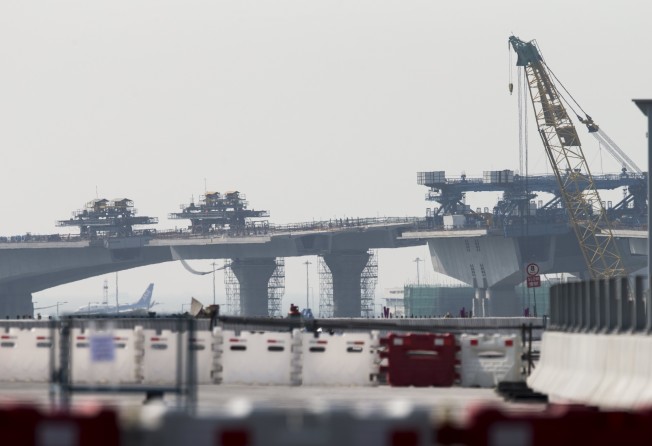Accountability system has fallen short of expectations
That the minister in charge was not informed of possible corruption in the building of the Hong Kong-Zhuhai-Macau bridge shows there are cracks in communication at the top echelons of government

Despite having been in place for 17 years, the government’s accountability system still has much room for improvement. The corruption scandal at the Hong Kong-Zhuhai-Macau bridge project is a case in point. The government failed to tackle the ensuing problems as expeditiously as it should have done. The minister in charge had been kept in the dark until last month, while the departments he supervised were aware of the potential problems for nearly a year.
Secretary for Transport and Housing Professor Anthony Cheung Bing-leung was more than just embarrassed when he openly admitted that he was the last to know about the alleged falsification of safety test results of the bridge by a government contractor. More importantly, he was denied an early opportunity to step in and decide on what actions might be needed to enhance the bridge’s safety.
Director of Civil Engineering and Development Lam Sai-hung said he did not alert Cheung to the corruption probe last July, as he did not consider the problem a serious one. Subsequent developments have proved Lam wrong.
Last month, the city’s graft-busters arrested 21 of the contractor’s employees for allegedly faking test results on some of the concrete used by altering time stamps and switching samples in order to meet compressive strength standards. So far, 210 falsified concrete samples have been found, of which 159 were linked to the bridge’s structural sites. Although officials insist that no irregularities in the concrete have been found, public confidence in the bridge’s safety has yet to be fully restored.
This is not the first time that bureaucrats have made such erroneous judgment calls. The officials concerned often have professional qualifications and may therefore think that they know better than their politically appointed supervisors. There may be no evidence to suggest any cover-up but in the world of politics, perception is everything. It may be hypothetical to say that the situation with the bridge might have been different had Cheung been alerted to the problem immediately. But it inevitably gives the impression that the government has not tackled the issue proactively.
The outgoing chief executive, Leung Chun-ying, has pledged to look into the communication issues within the government.
One of the reasons for replacing civil servants with political appointees at the top government echelons was to ensure a faster response to any issues that may arise and greater accountability. It would defeat the purpose of the system if bureaucrats and ministers cannot cooperate fully.